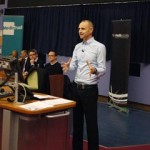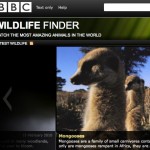Journalism lecturer Andy Dickinson (@digidickinson) has now updated his recent SlideShare and blog post on how to find editorial jobs online, which we featured on this blog last week, to include a more detailed transcript of his talk.
His blog post this week contains lots of handy tips for the dedicated journalism jobseeker, so if you are in the market for a new job, check it out.
Meanwhile, here at Journalism.co.uk, we have produced a new page explaining how to get the most out of our own jobs board, including six step-by-step videos taking you through the jobseeker registration process and various alert systems. Here are the benefits, all of which are free:
- ability to save jobs you have searched for and liked for later;
- ability to upload and store your CV;
- ability to apply online and save your applications for future re-use/modification;
- ability to register a personal statement so that our can advertisers can find you using our CV match service;
- ability to receive job opportunities by daily email;
- ability to create customised RSS feeds based on your own search criteria.
I would urge you to take a few minutes to sign up, even if you are not necessarily looking to make a move now. You never know what opportunity might coming knocking on your door.
Finally, if you are on the other side of the fence and looking to recruit editorial staff, please read why you should advertise your vacancies on Journalism.co.uk here, and register to post your jobs here.
Recruitment advertising helps fund our free content, so if you like what we do this is one great way to support us!
Useful reading:

